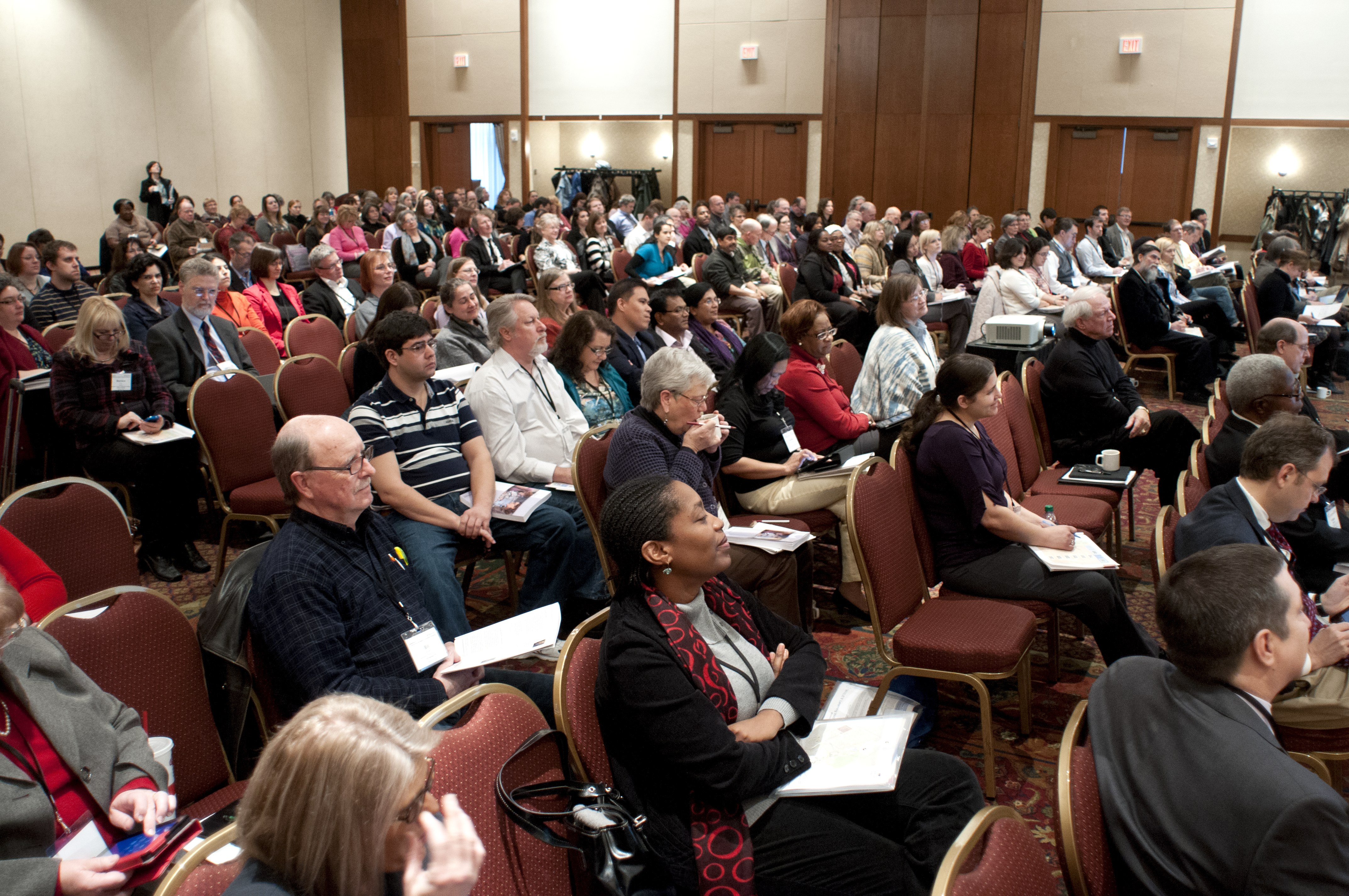University to host free, international conference on teaching and learning

More than 1,000 people are expected to attend Virginia Tech’s sixth annual Conference on Higher Education Pedagogy.
The conference, which will feature practice, research, conversation, and poster sessions focusing on higher education teaching excellence and the scholarship of teaching and learning, will be held Feb. 5-7, at the Inn at Virginia Tech and Skeleton Conference Center. Participants will represent 185 colleges and universities in 42 countries and 44 states as well as the District of Columbia and Puerto Rico.
Registration for the conference is free. “We don’t want a travel or professional development budget to prevent people from being able to attend,” said Peter Doolittle, assistant provost for teaching and learning and director of the Center for Instructional Development and Educational Research, which organizes the conference. “We want anyone interested in instructional effectiveness and student learning to be able to join us.”
While registration is free, attendees must still sign-up online so organizers can keep an accurate record of attendance and communicate properly with participants before and after the event. Without registration fees, academic and corporate sponsors as well as the Center for Instructional Development and Educational Research cover the cost of the event.
The conference begins Wednesday, Feb. 5, at 8:15 a.m. with an opening keynote address from José Bowen, dean of the Meadows School of the Arts and Algur H. Meadows Chair and professor of music at Southern Methodist University. His presentation is titled, “Teaching Naked: How Moving Technology out of your College Classroom will Improve Student Learning.”
Over the next three days, the conference will feature more than 320 research, practice, conversation, and poster sessions on the broad areas of STEM education, online/distance education, diversity and inclusive pedagogy, assessment and evaluation, instructional technologies, learning strategies and design, collaborative/group work, general education and core curriculum, professional development, and motivation.
Conversation sessions are a brand new session-type added to the conference this year. The sessions will begin with a presentation of no longer than 15 minutes, allowing the rest of the 50-minute allotment to be used for active participant discussion on the topic.
The conference concludes on Friday, Feb. 7, with a lunchtime closing keynote address with Melissa Peet, director of integrative learning and technology management at the Stephen M. Ross School of Business at the University of Michigan, Ann Arbor.
For the first time, the conference will provide a free mobile app (available in the iTunes or Android store). Conference participants can download the app, which features the conference schedule, maps, speakers (with session titles and descriptions), sponsors, social media, and more. Participants can join the attendee list on the app for networking as well.
Also new this year, the conference will feature a full day of pre-conference workshops on Tuesday, Feb. 4. The registration fee is $250, which gives participants access to their choice of a morning and afternoon session, in addition to breakfast, lunch, and a reception concluding the workshops.
The conference features multiple social events to allow attendees to meet and network. Outreach and International Affairs is hosting an international reception to celebrate participants coming from 42 different countries. There will also be a special “Large Class Discussion” event to provide teachers of large classes the opportunity to discuss challenges they face and strategies for success. Finally, there are many groups to join or create to bring together conference participants with commonalities.
A full schedule of events and session topics can be found on the conference website.
Dedicated to its motto, Ut Prosim (That I May Serve), Virginia Tech takes a hands-on, engaging approach to education, preparing scholars to be leaders in their fields and communities. As the commonwealth’s most comprehensive university and its leading research institution, Virginia Tech offers 240 undergraduate and graduate degree programs to more than 31,000 students and manages a research portfolio of $513 million. The university fulfills its land-grant mission of transforming knowledge to practice through technological leadership and by fueling economic growth and job creation locally, regionally, and across Virginia.







.jpg.transform/m-medium/image.jpg)